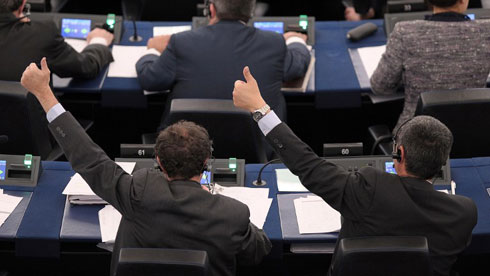Deep inside the Parlamentarium, the European parliament’s flashy, new €1m visitors centre, Eva Vanpeteghem and Elise Mais are learning about the mysteries of EU democracy. The Belgian students, both 15, are seated in a replica of the circular chamber where real-life MEPs debate and vote.
Schoolchildren are not the only ones waking up to the importance of an institution long derided as a retirement home for obsolete national politicians. Thanks to the 2009 Lisbon treaty, which dramatically expanded its powers – and the guile of some enterprising members – the European parliament now ranks as one of the most influential bodies in the EU. It has recently imposed its will on everything from fisheries to financial reform and the bloc’s €1trn budget.
Rude lesson in power
Just ask the lords of finance in the City of London, who were given a rude lesson in parliamentary power [earlier this month] when an initiative to cap bankers’ bonuses in the EU took a big step toward becoming a legal reality. MEPs not only hatched the idea but have managed to ram it through in spite of frantic opposition from the UK, which fears the restrictions could undermine the City as a global financial centre.
Like it or not, the bonus cap appears to be the shape of things to come from an increasingly muscular and assertive institution, according to analysts such as Thomas Klau, director of the European Council on Foreign Relations in Paris.
Was this article useful? If so we are delighted!
It is freely available because we believe that the right to free and independent information is essential for democracy. But this right is not guaranteed forever, and independence comes at a cost. We need your support in order to continue publishing independent, multilingual news for all Europeans.
Discover our subscription offers and their exclusive benefits and become a member of our community now!












